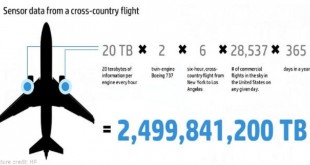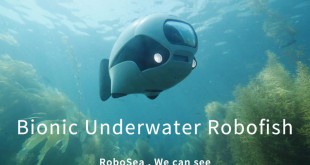Introduction: In the ever-evolving realm of photonics, the fusion of Spin Angular Momentum (SAM) and Orbital Angular Momentum (OAM) gives rise to the powerful concept of Total Angular Momentum (TAM). TAM offers a unique and highly informative way to characterize photons, holding immense potential for revolutionizing diverse fields like optical communications, …
Read More »TimeLine Layout
May, 2024
-
24 May
Vertical Wind Tunnel Revolution: Skyrocketing Towards New Horizons for Thrill Seekers and Security Personnel Alike
Introduction: The Thrill of Freefall, Grounded Picture yourself hurtling through the air, wind rushing past, and the unmistakable surge of adrenaline. Now, what if you could experience this exhilarating freefall without ever leaving the ground? Welcome to the extraordinary realm of Vertical Wind Tunnels (VWTs) – innovative marvels reshaping the …
Read More » -
22 May
Setting Sail for a Cleaner Future: Hydrogen Fuel Cell-Powered Ships
Traditional, fossil-fuel-powered ships spew harmful emissions, contributing significantly to global pollution. In the pursuit of sustainable solutions, the maritime industry is strategically embracing hydrogen fuel cell-powered ships. This cutting-edge technology stands out as an environmentally friendly alternative to conventional propulsion methods, providing an in-depth look into the technical aspects of …
Read More » -
22 May
Transforming Aviation: The Confluence of IoT, AI, and Big Data Analytics in Aircraft Operations
Introduction: The aviation industry, known for its adherence to precision and safety, is embracing the digital era with open wings. In an age where instant accessibility, interactivity, and personalization are key aspects of service-oriented businesses, airlines are leveraging digital technologies to enhance customer experiences, improve efficiency, and generate additional revenue. …
Read More » -
21 May
Magnetic Fusion Plasma Engines: Propelling Humanity Across the Cosmos
Introduction As humanity sets its sights on ambitious missions to the Moon, Mars, and beyond, the limitations of conventional propulsion systems become increasingly evident. The demands of deep space exploration require propulsion technologies that can deliver high acceleration, specific impulse, and fuel efficiency. The Limits of Conventional Propulsion Traditional chemical …
Read More » -
21 May
Innovation Beneath the Waves: Biomimetic Propulsion Systems for Ships and Unmanned Underwater Vehicle
The exploration of the underwater world has always fascinated humankind, prompting scientists and engineers to develop advanced technologies for underwater vehicles. Unmanned underwater vehicles (UUVs), also known as underwater drones, are submersible vehicles that can navigate their way through various water systems with or without human intervention. Typically, UUVs fall …
Read More » -
20 May
SOSA Standard: Revolutionizing Defense Electronics and Electronic Warfare Design
Introduction: The battlefield of the future is digital, interconnected, and increasingly complex. To maintain dominance in this rapidly evolving landscape, the U.S. military needs cutting-edge technology that is modular, adaptable, and capable of operating seamlessly in a congested electromagnetic spectrum. Enter the SOSA (Sensor Open Systems Architecture) Standard, a revolutionary …
Read More » -
20 May
The Double-Edged Sword: AI in Terrorism and Counterterrorism
Introduction In an era dominated by technological advancements, the influence of artificial intelligence (AI) is extending into various aspects of our lives. While AI has shown immense potential in areas like healthcare, education, and business, it also raises concerns about its potential misuse. One such area of concern is the …
Read More » -
19 May
From Space to Earth: Spinoff Technologies that Transformed Our World
Introduction: The vast expanse of space has not only fueled our curiosity about the cosmos but has also catalyzed the development of revolutionary technologies that have transformed life on Earth. While the space race of the mid-20th century primarily focused on lunar landings and exploring other planets, the technologies developed …
Read More » -
19 May
Navigating the Global Armored Vehicle Market: Trends, Technologies, and Future Outlook
Introduction: Armored vehicles stand as the bulwark of military and security forces, playing a pivotal role in modern warfare scenarios. Armored vehicles play a crucial role in modern military and law enforcement operations, providing protection, mobility, and firepower. In an era marked by geopolitical tensions, security concerns, and technological advancements, …
Read More »
 International Defense Security & Technology Your trusted Source for News, Research and Analysis
International Defense Security & Technology Your trusted Source for News, Research and Analysis


